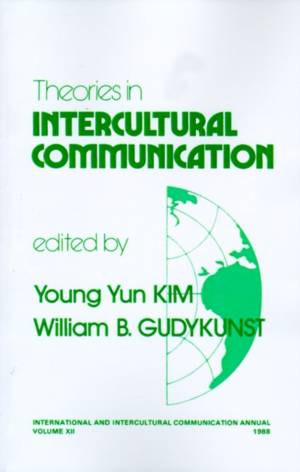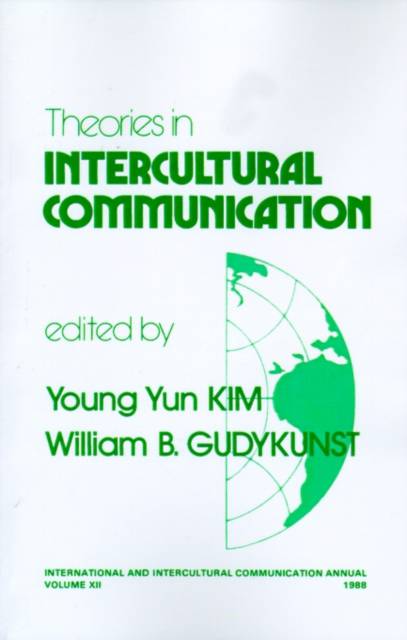
- Afhalen na 1 uur in een winkel met voorraad
- Gratis thuislevering in België vanaf € 30
- Ruim aanbod met 7 miljoen producten
- Afhalen na 1 uur in een winkel met voorraad
- Gratis thuislevering in België vanaf € 30
- Ruim aanbod met 7 miljoen producten
Zoeken
Theories in Intercultural Communication
€ 238,45
+ 476 punten
Omschrijving
Published in cooperation with the Speech Communication Association Division on International and Intercultural Communication Just as the earlier version of this work (Intercultural Communication Theory) helped to define the field, Theories In Intercultural Communication also makes an important contribution. This collection represents the major current approaches to the study of intercultural communication, as well as of communication in general. The contributors cover constructivist theory, coordinated management theory, convergence theory, adaptation in intercultural relationships, intercultural transformation, and network theory. The volume offers an analysis of the most current theories in intercultural communication. It also points to areas of further research and the need for continued refinements of existing approaches. This volume is valuable for graduate students and professionals in the areas of communication (especially intercultural and interpersonal), ethnic studies, cross-cultural studies, comparative studies, and education. "The book is well conceived in its purpose, scope, and organization. It is also well executed with an even quality throughout. Each chapter author clearly presents the theory and provides thorough documentation. . . . This volume . . . promises to become a central piece in both the definition and development of theory in intercultural communication." --Modern Language Journal "This volume does represent a significant attempt to consolidate and crystallize the current intellectual core concepts of mainsteam intercultural communications theories and to push the field forward toward a more rigorous and coherent state. . . . As a collection, these essays cover a lot of the bumpy terrain that constitutes the field of intercultural communication from an interpersonal perspective. . . . Very useful in the context of a university course on intercultural communications." --Canadian Journal of Communication
Specificaties
Betrokkenen
- Uitgeverij:
Inhoud
- Aantal bladzijden:
- 328
- Taal:
- Engels
- Reeks:
- Reeksnummer:
- nr. 12
Eigenschappen
- Productcode (EAN):
- 9780803931503
- Verschijningsdatum:
- 1/10/1988
- Uitvoering:
- Paperback
- Formaat:
- Trade paperback (VS)
- Afmetingen:
- 141 mm x 217 mm
- Gewicht:
- 471 g

Alleen bij Standaard Boekhandel
+ 476 punten op je klantenkaart van Standaard Boekhandel
Beoordelingen
We publiceren alleen reviews die voldoen aan de voorwaarden voor reviews. Bekijk onze voorwaarden voor reviews.







